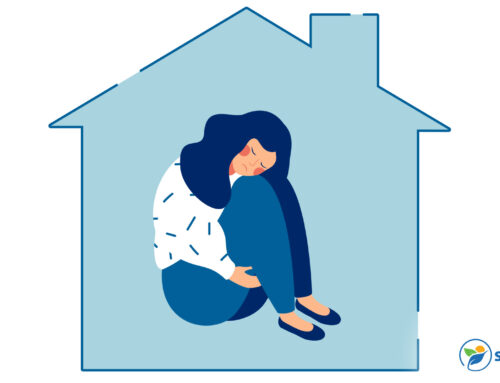Do you have a fluttering feeling in your chest? A fast-beating or pounding heart? You may be experiencing heart palpitations. This condition is quite common and can be triggered by a variety of things, from stress or heavy exercise to medication side effects. Although heart palpitations can be scary to experience, they’re usually harmless.
This resource explores heart palpitation as condition symptoms and discusses how to treat and manage palpitations when they occur.
Heart Palpitations: Condition Symptoms
Heart palpitations can manifest in many forms. A few of the symptoms to look out for include:
- A pounding heartbeat
- A fluttering feeling
- The sensation of your heart beating too fast
- Your heart “skipping a beat”
These feelings are usually confined to the chest, but some people report feeling palpitations in their throat or neck.
Most people have a resting heart rate of about 60 to 100 beats per minute, though those who exercise frequently or take certain medication may have a slower heart rate. It’s normal for a person’s heart rate to increase during exertion, but irregular heart rates while at rest are classified as arrhythmias and may be cause for concern. A heart rate of more than 100 beats per minute while at rest is known as tachycardia, while a very slow heart rate is known as bradycardia. Sometimes a heart may experience an extra, “out of rhythm” beat called an extrasystole.
Heart palpitations anxiety is completely reasonable, as it can be a scary experience. Palpitations that occur only occasionally and pass quickly are usually benign — especially for someone in good health. However, it’s important to seek medical advice about heart palpitations that keep coming back, appear to be getting worse or last for longer than a couple of minutes.
People who have a heart condition or who have a family history of heart issues may also benefit from getting their heart palpitations checked. Some are at an increased risk of abnormal heart rhythms due to irregularities in the heart’s valves, existing heart disease or other underlying health conditions. Palpitations can be an early earning sign, but a health care professional may be able to confirm you’re in good health.
Causes of Heart Palpitations
Common triggers and causes of heart palpitations include:
- Stress or anxiety
- Lack of sleep
- Panic attacks
- Depression
- Strenuous exercise
- Side effects of stimulant-containing medication
Heart palpitations can signal medical conditions not directly related to the heart, such as an overactive thyroid or an iron deficiency. These symptoms can often be managed through medication.
Women may also experience palpitations due to hormone fluctuations. This can occur as a part of the normal menstrual cycle, during pregnancy or as part of menopause.
Another, less common cause of unusual heart rhythms is electrolyte imbalances. Someone who’s been very sick, had diarrhea or otherwise become dehydrated may need to take care when rehydrating to avoid low potassium levels, which can lead to muscle weakness, cramps, fatigue and other symptoms, as well as palpitations.
The consumption of alcohol can trigger unusual heart rhythms in people, even if they don’t frequently drink. This phenomenon is known as holiday heart syndrome, which describes the increased prominence of cardiac arrhythmia after a period of binge drinking, such as over a weekend or public holiday.
Individuals who are or have been struggling with drug abuse or alcohol addiction may experience palpitations as a side effect of their drug use. Because they can be a warning sign of a more serious problem, it’s vital anyone with a history of high-risk behaviors seeks professional medical advice if they experience palpitations for the first time. It’s also a good idea to seek out care if there’s a change in symptoms, such as if the palpitations occur more often, feel more painful or last longer than they normally do.
Treatment Options and Management Strategies
Most heart palpitations are benign and don’t need to be treated. If you don’t have an underlying medical condition, heart palpitations can usually be managed with some simple lifestyle changes.
Many people find that avoiding stress or finding ways to better manage it can help reduce the frequency with which palpitations occur. In addition, stopping smoking and avoiding caffeine and alcohol can help reduce the risk of palpitations.
People who are experiencing severe palpitations may be sent for an electrocardiogram (ECG) to help identify the underlying cause. This test uses sensors attached to your chest to check the electrical signals coming from the heart.
Other common tests include the use of a Holter monitor or other heart rate monitor, worn for an extended period to check your heart rhythms during day-to-day activities, or more detailed echocardiograms or electrophysiology studies. These tests can help determine whether there’s a more serious problem with your heart. In some cases, medication can be used to reduce the frequency of palpitations.
Self-care can be beneficial for people who experience frequent but benign palpitations. Deep breathing and relaxation exercises can help soothe an attack, and mindful practices such as yoga, meditation and tai chi may also help.
Gentle exercise is good for cardiovascular health and can also help regulate a person’s mood and reduce stress. However, since strenuous exercise can trigger palpitations in some individuals, it’s a good idea to seek advice from a medical professional before starting an exercise program, especially if you’re usually sedentary.
Help Is Available for Heart Palpitations
If you’ve never had palpitations before and you’re feeling dizzy, sweating or having chest pains, it’s vital to seek immediate medical counsel. If the palpitations are milder but you’re still feeling concerned, your health care provider can help you figure out how to proceed.
At Sunlight Recovery, we offer a variety of outpatient and inpatient services to support people dealing with stress, PTSD, anxiety, depression and addiction. Many of these issues can lead to palpitations, and treating the underlying cause can help reduce these symptoms. Call Sunlight Recovery today to book a confidential consultation with one of our specialists.






